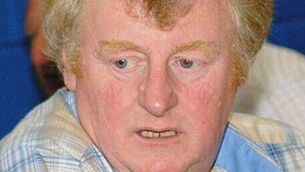Sixty-six less pubs in Waterford since 2005

U2 outside Downey's Dungarvan.
There’s 66 less pubs in Waterford since 2005, a 25.4% decrease. Twenty-two of those have closed since 2019.
A new report from the Drinks Industry Group of Ireland (DIGI) shows that 2,054 pubs have closed down within the past 20 years nationally.
An average of 114 pubs are closing annually, with the trend rising to 144 in the later 2019-2023 period. All 26 counties have experienced a decline in pub numbers since 2005.
Counties Limerick (35.6%), Roscommon (31.9%), Cork (31.4%), Tipperary (31.2%) and Laois (30.6%) have seen the highest declines, each exceeding the national closure average of 24%.
The lowest number of pub closures over the period came in Dublin, which has seen a decline of 3% in pub numbers. Other counties with lower closures rates include Meath (6.7%), (Wicklow (8.9%), Kildare (12%) and Carlow (14.2%).
Meanwhile, a recent survey of 600 pubs and restaurants found that almost one in four have seen their costs rise by 20-30% in the last two years, while 15% have seen their costs rise by over 40%.
Speaking to the Waterford News & Star, John McGrath, proprietor of Downey's Bar Dungarvan and VFI County Secretary for Waterford said that “firstly no one closes a business that is successful”.
“Since re-opening after Covid-19 customers' habits have changed, less visits to the pubs, many got used to drinking at home. While we are very lucky to have the Local Link in Co Waterford, the severe lack of taxies available to bring customers to the pub and to take them home is having a major effect on pub business.
"Here in Dungarvan, we have a summer influx of between 5,000 and 8,000 visitors over the summer and we would be lucky to have one/two taxis working on week nights. This has resulted in some pubs shutting early and some not even opening early in the week.”
He adds that the cost of doing business includes rates, energy, credit card fees, insurance and Sky TV, which is on average €1,100 per month for any bar showing Sky Sports.
“The minimum wage is another major cost factor,” he said. "And the shortage of experienced bar staff since Covid, many of whom left the business to go to the local factories.
“There is no exit plan for publicans, many of whom are at and over retirement age. If they are lucky, their licence may sell for €60K to €70K.”
He added that the VFI are actively lobbying politicians for a reduction of 7.5% in excise duty, to lower the hospitality VAT rate to 9%, and reduce Employer’s PRSI.
John said the outlook for pubs is still very positive, however, with some new pubs reopening recently and a renewed interest in people wishing to purchase a pub, although some may be converted to accommodation.
“The pub is still the only place you can get the perfect pint and it still remains Ireland's number one tourist attraction with overseas visitors,” he said.
Commenting further, author of the recent report, Professor Tony Foley said: “The continuing decline is taking place against a backdrop of societal change and cost of business strains.
"Consumption of alcohol has notably decreased, how we socialise is changing, the types of drinks we consume are changing, particularly the rise of low-alcohol and alcohol-free products.
“We are also seeing that with many pubs, which are often small, family-run businesses, sustaining business is becoming harder and harder.
“Ireland’s drinks and hospitality businesses are operating in an environment where the costs of doing business are ever rising. Energy, insurance, and other cost line items continue to rise, many by double digits.
"The sector is also faced with one of the most regressive excise tax environments for small and medium enterprises in Europe."






